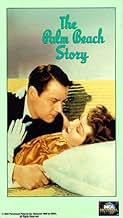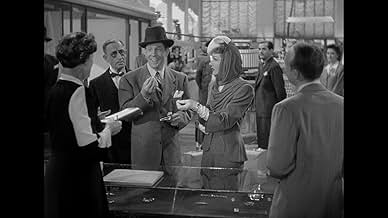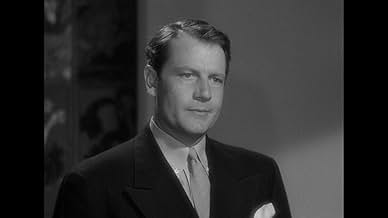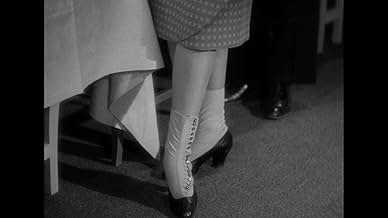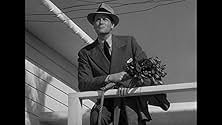Aggiungi una trama nella tua linguaA New York inventor needs cash to develop his big idea, so his adoring wife decides to raise it by divorcing him and marrying an eccentric Florida millionaire with a capricious high-society ... Leggi tuttoA New York inventor needs cash to develop his big idea, so his adoring wife decides to raise it by divorcing him and marrying an eccentric Florida millionaire with a capricious high-society sister.A New York inventor needs cash to develop his big idea, so his adoring wife decides to raise it by divorcing him and marrying an eccentric Florida millionaire with a capricious high-society sister.
- Regia
- Sceneggiatura
- Star
- Premi
- 1 vittoria in totale
- Fourth Member Ale and Quail Club
- (as Rosco Ates)
Recensioni in evidenza
The opening of "Palm Beach Story" is a bizarre scene that only makes some sense (and I'm emphasizing some) at the very end of the film. It's certainly an original way to start a movie. There are some hilarious scenes in this film - desperate to get to Palm Beach for a quickie divorce, but with no money, Colbert accepts the invitation of the gentlemanly Ale and Quail Club to ride in their private train car as their guest and mascot. Unfortunately, the emphasis in this club is the ale and not the quail - shooting sugar cubes will do - also blowing out train windows, trashing whole train cars - you get the idea. Running from them, Colbert soon meets up with Rudy Vallee, who gives an absolutely delightful performance as a filthy rich man. He serenades her at one point, and it's great, hearkening back to his days as a crooner! Mary Astor is his many times married sister, and when Colbert's husband shows, in the form of Joel McCrea, Astor sees her next mark.
McCrea has a funny slapstick fall down a flight of stairs, but otherwise, doesn't have much to do except be angry and jealous of his wife. Colbert in her glorious clothes, Vallee, and a vivacious Astor upstage him a bit. A very funny film, produced during World War II to give America a much-needed laugh.
Do you tip your hat to the uniformly wonderful performers?
Do you pay tribute to the bizarre and hilarious conversations held by the Weenie King (Robert Dudley), an incidental character who manages to be a lot more than a mere plot contrivance?
Do you mention the fact that the film was clearly an influence upon the (slightly superior) screwball classic Some Like It Hot?
Nope. You just say, Preston Sturges was a genius and this is his best film.
Gerry Jeffers (Claudette Colbert) has decided that she needs to divorce her husband Tom (Sturges regular Joel McCrea). Why? We're not quite sure. Perhaps she's looking for thrills, perhaps she simply wants a partner who can pay the rent and perhaps she's truly come to believe that she no longer loves him. No matter. Her mind is made up and there's nothing Tom can do about it. Try as he might, Gerry slips through his fingers and ends up on a train to Palm Beach, the divorce capital of the world.
Echoes of Some Like first appear on the train ride when Gerry finds herself unable to sleep do to the racket being caused by The Ale and Quail Club. It's bad enough when they start shooting out windows, and what comes next... let's just say that it's a lot funnier than it would be if it happened in real life.
Still, Gerry makes it to Palm Beach, in the company of nutty millionaire John D. Hackensacker (Rudy Vallee). Things only get really out of hand once Tom arrives and becomes pegged as a bachelor, Captain McGlew. And spoil more of the plot for you I will not.
Sturges was capable of operating in many modes: responsible and patriotic (Sullivan's Travels) and outrageously madcap (The Miracle of Morgan's Creek) are two that come to mind. But Palm Beach shares its elegance, wit and reserve with The Lady Eve, in which con artist Barbara Stanwyck sets her sights on absent-minded professor Henry Fonda. (Even the mistaken identity plot is similar upon examination).
Between the two, Eve may end on a slightly more graceful note, but Beach seems to be made with a bit more... well, experience. Sturges seems at his most relaxed throughout the film and it does a world of good. (The story is bogged down only by brief moments of racism early on). And leaving, it's hard not to feel sunny and refreshed.
For those in need of a vacation, I recommend a stay at Palm Beach. And the rest of you should come along as well.
The subplot with the twins, glanced at in the beginning and end of the picture, is another conscious lampooning of conventional movies, here a lampooning of the structure of movies themselves, of their conventional beginnings and endings. It's not meant to be taken seriously; as McCrea's character casually says at the end, it's all stuff "for another movie."
No words can be found to adequately praise Claudette Colbert's performance. Joel McCrea is good too, as the prototypical wooden 1930s leading man. Rudy Vallee is absolutely hilarious as a "momma's boy" version of John D. Rockefeller, as is Mary Astor as his rich nymphomaniac sister. Her eunuch, Toto, played by Sig Arno, seems straight out of an Ernst Lubitch picture, perhaps a Sturges nod to the master. Quite a few scenes of the film, in their settings and atmosphere, pay homage to Lubitsch. Sturges does the "Lubitsch touch" proud, especially in those two scenes when Colbert sits on McCrea's lap so that he can undo the back of her dress, with the two of them both times melting into a kiss, and the scene ending with a fade out, leaving little doubt as to what will happen next. The second scene is particularly romantic, done as Rudy Vallee sings "Good Night Sweet Heart," itself a standard of the 1930s. Vallee also sings a line of "Isn't It Romantic," a song introduced in the luminous 1932 film "Love Me Tonight," directed by Rouben Mamoulian. The music in the film itself hearkens back to those great romantic comedies of the 1930s.
It's nice to see Sturges's stock company of actors popping up here as well. I noticed William Demarest say his name was "Bill Docker," the same name his character had in Preston Sturges's "Christmas in July."
In short, "The Palm Beach Story" is a wonderful film, whose richness can really be appreciated when seen in context, in the context of those old 1930s Paramount films, both the melodramatic ones like "Up Pops the Devil," that it lampoons, and the comedic, romantic ones like "Love Me Tonight" and "One Hour with You," that it pays homage to.
Lo sapevi?
- QuizIn the long dolly shot of Joel McCrea and Mary Astor strolling on the pier from Rudy Vallee's yacht, Preston Sturges makes a rare Alfred Hitchcock-style appearance as the chubby, moustachioed leader of the crew toting Claudette Colbert's luggage.
- BlooperOn the train, the men with the shotguns shoot out the glass of the same window several times.
- Citazioni
Wienie King: Cold are the hands of time that creep along relentlessly, destroying slowly but without pity that which yesterday was young. Alone our memories resist this disintegration and grow more lovely with the passing years. Heh! That's hard to say with false teeth!
- Curiosità sui creditiWhile the opening credits are running, a prequel story about the two leads' wedding is being shown that is only hinted at in the last few minutes of the movie and the words, "And they lived happily ever after...or did they?". The movie comes full circle at the end to another wedding with the the same phrase "And they lived happily ever after...or did they?"
- Versioni alternativeThere is an Italian edition of this film on DVD, distributed by DNA Srl: "RITROVARSI A PALM BEACH (1942) New Widescreen Edition + DONNE E VELENI (1948)" (2 Films on a single DVD, with "The Palm Beach Story" in double version 1.33:1 and 1.78:1), re-edited with the contribution of film historian Riccardo Cusin. This version is also available for streaming on some platforms.
- Colonne sonoreIsn't It Romantic?
(1932) (uncredited)
Lyrics by Lorenz Hart
Music by Richard Rodgers
Played by a dance orchestra during the ballroom sequence
I più visti
- How long is The Palm Beach Story?Powered by Alexa
Dettagli
Botteghino
- Lordo Stati Uniti e Canada
- 438.200 £
- Tempo di esecuzione1 ora 28 minuti
- Colore
- Proporzioni
- 1.37 : 1
Contribuisci a questa pagina



